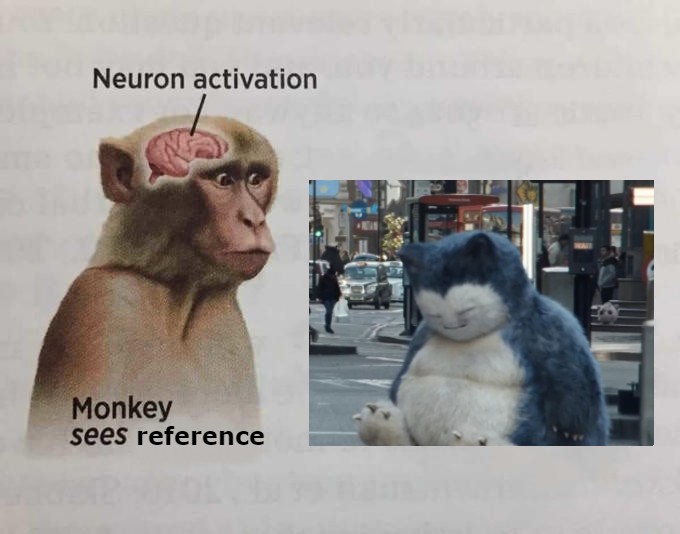Not to self-report as a weeb, but I enjoy watching anime, and one of the many I’ve been watching recently is Chainsaw Man. It’s a Shonen show, meaning its main target audience is teenage and young adult boys, and presents themes and tropes that are stereotypically more “male”. It’s a good show, not that groundbreaking to me yet as there are only 4 episodes out, but I also fall in the category of people that did not, in fact, read the manga and were just waiting, foam at their mouth, for it to be animated. I wasn’t even that interested in it, to be honest, until I saw the opening theme. Which changed everything.
It was glorious. I find myself not only listening to the song, which is pretty good, but especially rewatching it on loop on YouTube. I have never experienced an obsession and rush of dopamine quite like this, when the song kicks in and the pixels start moving. If you aren’t familiar, this opening animation features a hefty number of movie and pop culture references, re-enacted by animating the show’s characters into these sequences.
It’s genuinely, and simply, really effing sick. I have watched so many analyses of this opening sequence because I have been trying to understand why I like it so much, and of course there’s a hundred reasons, from the drawings, the animations, the juxtaposition of light and colors in the sequence – really, so much that it would take me way too long to list and explain them all. Also, I don’t have the expertise for that. But what I do have is a basic understanding of pop culture and a curiosity for how my synapses work, especially when it comes to references.
Easter egg hunting
No, not APA or MLA, those are the bad ones. I’m talking movie references and easter eggs. Yes, you read it correctly, easter eggs. Within digital media, easter eggs are messages hidden in software, video games, or films. They can be something very simple, like a developer’s favorite movie on a poster in the background of a video game, or a callback to a film set in the same universe. Pretty simple, but for some reason whenever media consumers find them, and more importantly, recognize them, they go wild. They go crazy. They go positively bonkers.

Make no mistake, I am one of these consumers. If I’m watching a movie and recognize something as a reference on the screen, I also point excitedly to it and look around the room to see if anyone else got it. It is mere human nature, really. I wondered for a while what about easter eggs is so exciting, and I’m pretty sure it all boils down, as usual, to the most primal of human needs: society.
We live in a society
The Joker was right, we really do. Humans are social animals; we need a community and we need to feel like we belong to it. I will not delve too much into it as it’s a whole field of sociology and psychology, but to really extremely boil it down, humans have a need to grow interpersonal attachment through frequent non-aversive interactions that will hopefully resist detachment in the future, which functions as a basic human motivation (Baumeister & Leary, 1995). Which is what I would say if we all had PhDs in psychology. But we don’t, so the key takeaway is more like “we want friends that we can talk about things with because it’s nice”.
To know that you belong to a group feels good, it offers an environment to grow in, as well as gives the opportunity to relate to other people with a mutual understanding and common interests. And that is basically what offering references for the audience to pick up on in media does. People will see the hidden message, pick up on it and immediately share it with others, hoping that they also saw it and picked up on it: it gives them an opportunity to be in on what feels like a secret, a sort of inside joke. You can only really get it if you know about it. And it makes you feel good because you do know about it.
“We want friends that we can talk about things with because it’s nice.”
Camilla Raffaelli, paraphrasing some actual scientific insight
Gatekeepers and Keymasters
Of course, this only feels nice if you do get it. There is a lot of online talk about gatekeeping (the act of preventing access to some people to information) and social exclusion within communities. It used to be a big thing – I remember vividly being a 14-year-old girl and very much into Star Wars, because my dad got me into it as a child, and being asked to prove my knowledge of the franchise or “I wasn’t a real fan”.
It felt weird back then and still feels weird now, not going to lie. But I guess it’s not really far from social exclusion within actual society, where some individuals still struggle to gain access to the same social capital as others. I think. Pretty sure this article covers that greatly (Zhao et al., 2012). Fortunately, though, when it comes to liking the same franchise or video game, it is starting to get better- I’m no longer being asked to prove my worthiness to be a fan of something anymore! Which is nice, really. Either way, this was mostly me trying to find out why seeing and getting references makes my brain go brr and it was very fascinating to find out how it’s all due to me simply being human.
If you would like to know more about easter eggs and how movie references work, I would recommend reading On the Nature of Easter Eggs (Wardlow, 2018), a very insightful article on this phenomenon.
References (haha get it)
Baumeister, R., & Leary, M. (1995). The Need to Belong: Desire for Interpersonal Attachments as a Fundamental Human Motivation. Psychological Bulletin, 117, 497–529. https://doi.org/10.1037/0033-2909.117.3.497
Cello Time (Director). (2022, October 14). CHAINSAW MAN OPENING – ALL REFERENCES (FULL FRAMES). https://www.youtube.com/watch?v=hlEr2Eh_Azc
Wardlow, C. (2018, April 1). On the Nature of Easter Eggs. Film School Rejects. https://filmschoolrejects.com/on-the-nature-of-easter-eggs/
Zhao, L., Lu, Y., Wang, B., Chau, P. Y. K., & Zhang, L. (2012). Cultivating the sense of belonging and motivating user participation in virtual communities: A social capital perspective. International Journal of Information Management, 32(6), 574–588. https://doi.org/10.1016/j.ijinfomgt.2012.02.006




Hi, thanks for this blog post! I had a big grin on my face while reading it. I finally understood why my brain goes in happy mode when seeing and understanding easter eggs and references. I recognize myself in your example. Indeed, the Chainsaw Man opening offered quite a feast of references and easter eggs, that the exact referencing video you used made me start reading the manga and watch the anime afterwards. I would like to add that, besides a sense of belonging, references and easter eggs also can add layers of meaning in a medium that add to the enjoyment of the consumed content.
Please consider reading the manga to encounter many more filmic references (the author is a big movie fan) and more importantly to appreciate this work of art packed to the brim with easter eggs and references – behold, massive spoilers up to chapter 97 ahead: https://www.youtube.com/watch?v=H-igXtS_3XA&ab_channel=StevWux (Chainsaw Man Opening – Paint Version (SPOILERS)).
As for your point about gatekeeping: I think that there is no “right” way to be a fan or enjoy a media. If there was, it would make the discussions about the consumed content sterile so yay for open-mindedness and tolerance in fandoms!
I loved your blog!! The OP was indeed a banger! But also I recognizer myself in it. Like when I see easter eggs I am like that monkey lol. I get so excited or like: how did I miss that!! My bf always make movie references while watching other movies or anime so this makes it very funny and relatable
Hii!! I really enjoyed your blog about the easter eggs! I do relate to the fact that references spark some joy in me. Learning that this particular happy feeling comes from the feeling of being included into a group was very interesting! Your self-made meme about the monkey brain made me laugh.
Great post!! I am watching Chainsaw Man and yes… The animation is glorious and absolutely jaw-dropping! … But the story though??? I have heard that Chainsaw Man’s story is absolutely great but right now, I am not that impressed tbh…
Anyway, going to the main point of your post– Yes I love references of anything in media!! I absolutely go wild if I see a Zelda reference in a show that I watch hehe… And I love when I make anime inside jokes with my sister and friends. It is just… such a euphoric feeling to bond like this.
So I like anime/manga as well, and I actually happen to stumble upon the opening of Chainsaw Man a few weeks ago, entierly by chance. Or not so much by chance as it was the doing of my youtube feed (there’s a trend, you see). Anywho, that made me check out the manga and whaddaya know! A shower of references indeed! The argument of references making our monkey brains go ”yay!” is definetly one that holds water, as even industries have picked up on that trend. Be it video games making in jokes about certain communities or films like Ready Player One who seem to nearly be build around pop-culture references, it never fails to make me point it out to anybody who is with me at the time. It’s a gateway for a conversion and our passions, what’s there not to like indeed.